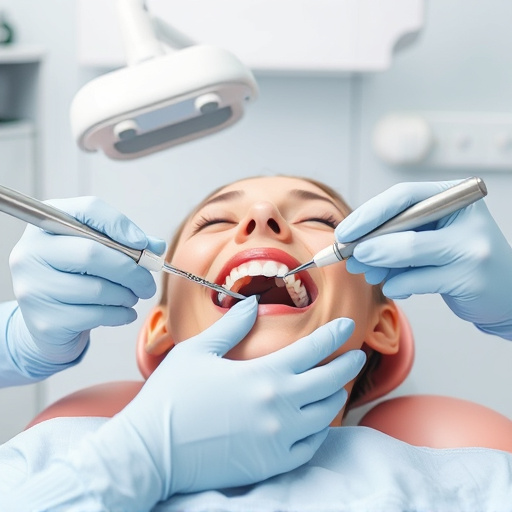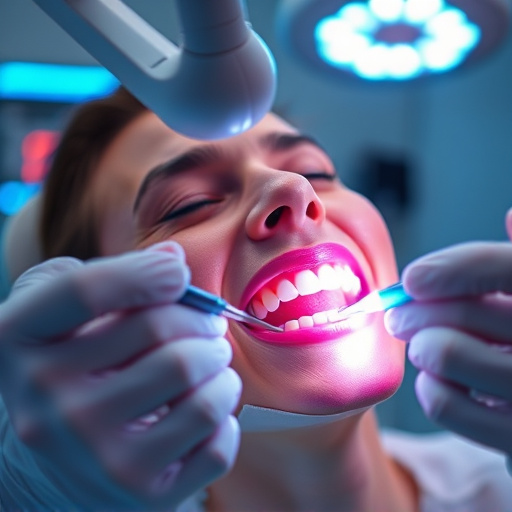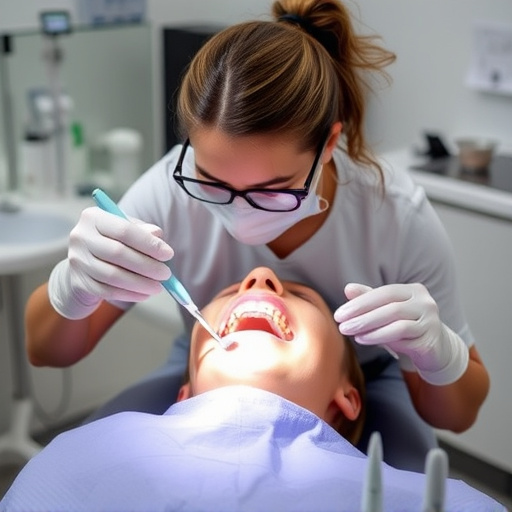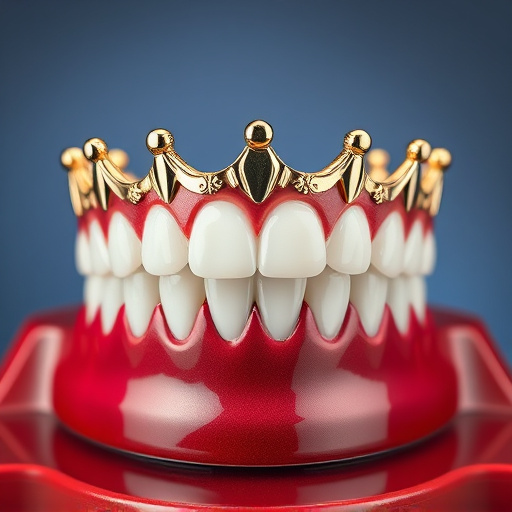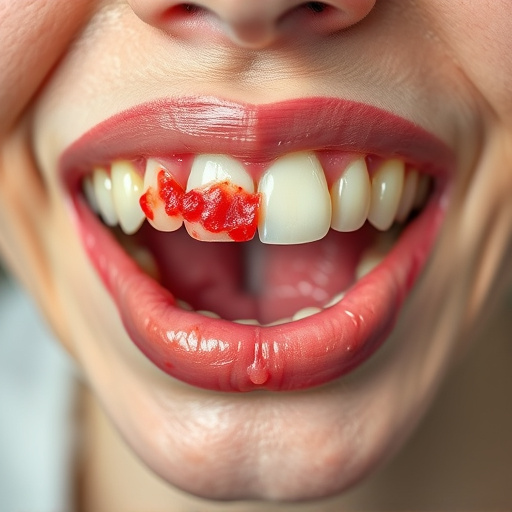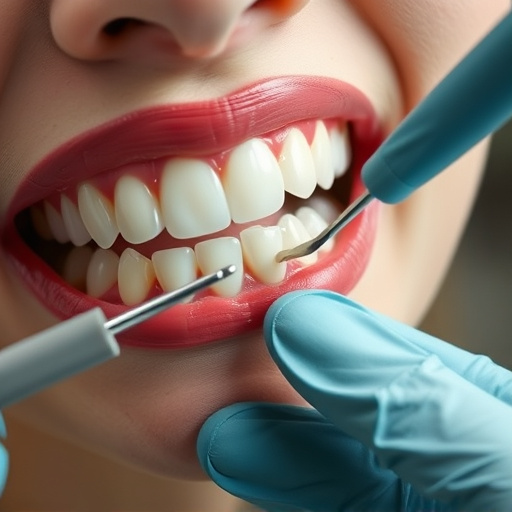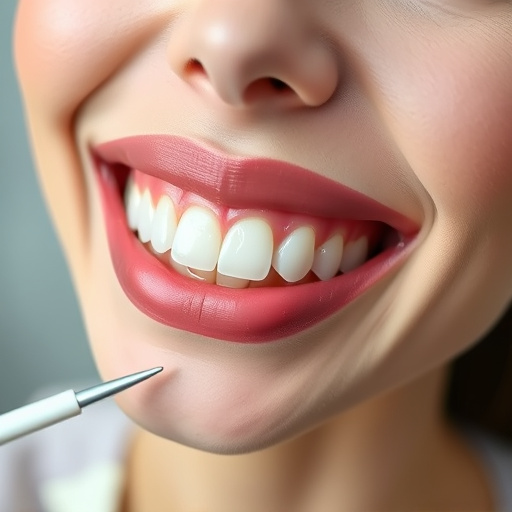Missing teeth due to decay, gum disease, or injury pose significant oral health risks, affecting chewing, speech, and leading to bone loss. Regular dental care is vital for prevention, alongside exploring timely missing teeth solutions like implants, bridges, or dentures. Implants offer long-lasting stability but are more expensive; bridges and dentures provide quicker, cheaper alternatives. Proper oral hygiene complements these solutions, while dentists guide patients through options tailored to their unique needs and lifestyle.
Missing teeth can significantly impact your confidence, chewing abilities, and overall oral health. Fortunately, modern dentistry offers several effective missing teeth solutions, including dental implants, bridges, and dentures. Each option presents unique advantages and considerations tailored to individual needs. This comprehensive guide explores these treatments in detail, helping you understand the benefits, procedures, and factors that influence the best missing teeth solutions for your specific situation.
- Understanding Missing Teeth: Causes and Impact
- Implants, Bridges, and Dentures: Detailed Explorations
- Choosing the Right Solution: Factors to Consider for Optimal Results
Understanding Missing Teeth: Causes and Impact

Missing teeth can arise from various causes, including tooth decay, gum disease, injury, or congenital conditions. While it may seem like a minor inconvenience, missing teeth have a significant impact on oral health and overall well-being. Not only do they affect chewing ability and speech, but they also contribute to bone loss in the jaw, which can alter facial structure over time. This deterioration can lead to further complications, such as neighboring teeth shifting or difficulties maintaining proper dental alignment.
Regular dental cleanings and preventive dentistry play a crucial role in maintaining oral health and potentially preventing tooth loss. Children’s dentistry is also essential, as it focuses on establishing good habits early on, including proper brushing techniques and regular check-ups. By addressing missing teeth solutions like implants, bridges, or dentures promptly, individuals can restore functionality, regain confidence in their smile, and preserve the overall health of their mouth.
Implants, Bridges, and Dentures: Detailed Explorations

When it comes to addressing missing teeth solutions, modern dentistry offers a range of effective options that can restore your smile and oral functionality. One popular and long-lasting solution is dental implants. These are synthetic roots made from materials like titanium, surgically placed into the jawbone to support individual crowns or bridges. Implants provide a strong foundation for replacement teeth, resembling natural teeth in both appearance and function.
Bridges, another common missing teeth solution, involve permanently attaching artificial teeth (called pontics) to adjacent natural teeth. This method not only fills gaps but also distributes chewing forces evenly across the dentition. Dentures, removable replacements consisting of a base that resembles the gums and false teeth attached to it, offer a more affordable alternative. While they may require adjustments for comfort and fit, dentures can be a reliable solution for those seeking a cost-effective missing teeth solution. Additionally, proper oral hygiene practices, including regular dental cleanings and preventive dentistry procedures like those offered in children’s dentistry, are crucial for maintaining overall oral health alongside these restorative options.
Choosing the Right Solution: Factors to Consider for Optimal Results
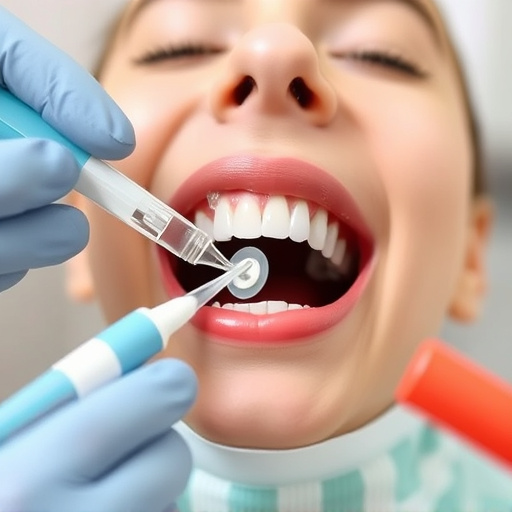
When it comes to choosing the right missing teeth solution, several factors come into play. The first step is evaluating your overall oral health and the number of teeth that are missing or need replacement. This includes considering the state of your jawbone, as implants, for instance, require a healthy and robust bone structure for successful integration. Moreover, your budget plays a significant role, with implants often being more expensive than traditional bridges or dentures.
The type of missing teeth solution you opt for should also align with your lifestyle and preferences. For example, clear aligners might be a better fit for those seeking a discreet option, while dental crowns can offer additional support for nearby teeth. In the case of multiple missing teeth, implants provide long-lasting stability, but bridges or dentures may be more suitable for cost-effective, quick solutions. General dentistry professionals can guide you through these options, ensuring optimal results tailored to your unique needs.
Missing teeth can significantly impact one’s confidence and overall quality of life. Fortunately, modern dentistry offers a range of effective missing teeth solutions, including dental implants, bridges, and dentures. By understanding the causes and impact of missing teeth, individuals can make informed decisions when choosing the right solution for their needs. Each option—from implants to bridges and dentures—has its unique advantages and considerations, ensuring that everyone can find a suitable long-term missing teeth solutions to restore their smile and chewing function.






